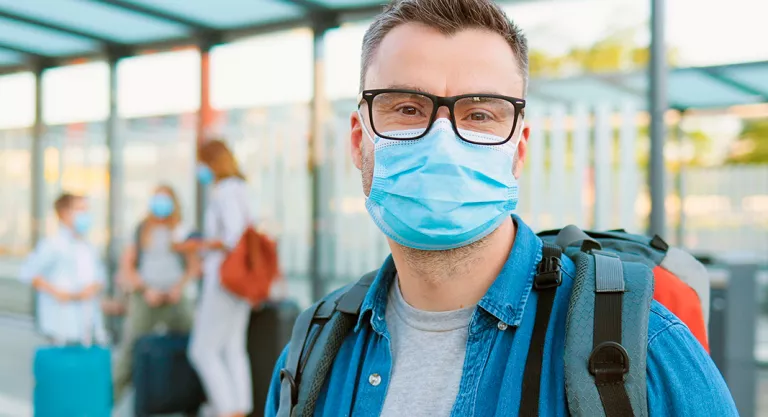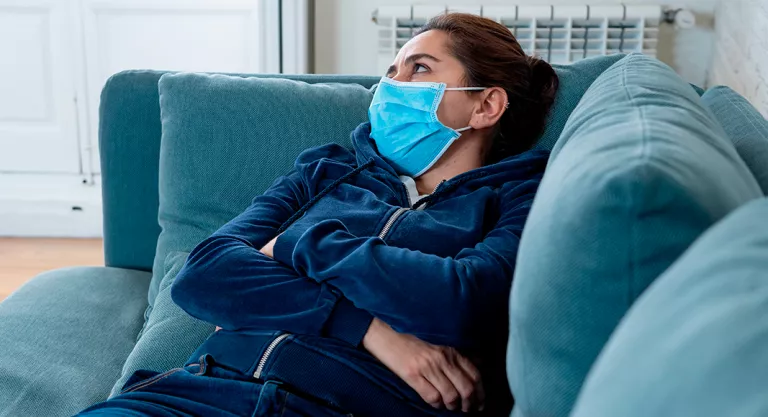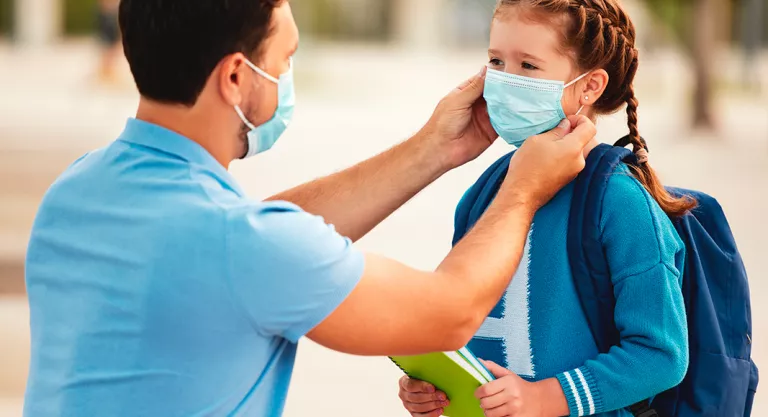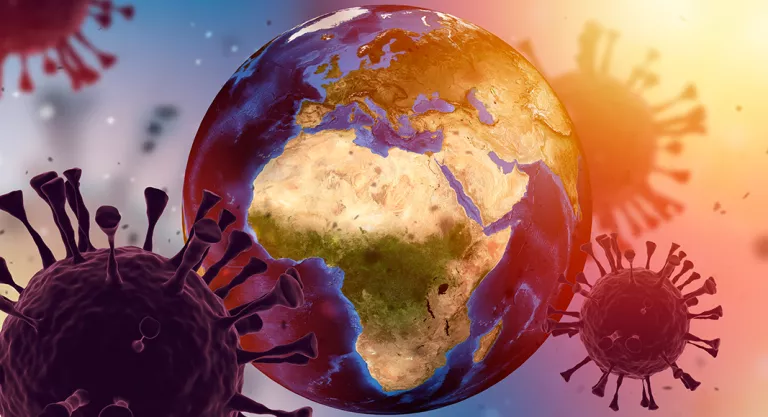Speculation about omicron spread almost at the same speed as the last variant of concern of the coronavirus, since it was declared as such on November 26, 2021. The most recent epidemiological data shows that we are witnessing a rapid increase in the rate of COVID-19 infection worldwide. Since the B.1.1.529 variant (baptized omicron) was first detected just nine weeks ago, more than 80 million cases have been reported, more than in all of 2020. The WHO has tracked the media, social networks and the most common internet searches to address some of the myths that surround ómicron, and that make it difficult for both citizens and governments to make informed decisions for the protection of health. Thanks to collaborative global research and the passage of time, this is the verified information that is available on the matter for now:

Myth: All cases of omicron are mild
Done: Omicron appears to be less severe than delta, but should not be considered mild.
Several countries have shown that the severity of omicron infection in their populations has been less compared to delta. However, these studies have taken place, above all, in countries with high rates of vaccination. The reality is that the comparatively lower rate of hospitalizations and deaths so far is largely due to vaccination, particularly of vulnerable groups. Without COVID-19 vaccines, many more people would likely be admitted to hospital. Therefore, it is too early to know what impact omicron will have in countries with the lowest vaccination rates and in the most vulnerable groups.

Myth: Because omicron is less severe, there will be fewer hospitalizations
Fact: Ómicron poses a high risk to health systems
Current data indicates that omicron spreads more easily than delta. Although it causes milder cases of COVID-19, and a lower percentage of patients end up in the hospital. However, given the very high number of infections, this lower percentage represents a large number of hospitalizations. This makes it more difficult for health systems to treat patients with both COVID-19 and other types of diseases.

Myth: Omicron is the same as a common cold
Fact: Omicron is much more dangerous than a common cold
Ómicron is not like a common cold, since there are more chances that a positive for COVID will take you to the hospital than for a cold. People infected with the omicron variant are being hospitalized and have died as a result. In addition, people who get omicron and recover are also at risk of developing persistent COVID.

Myth: Vaccines don’t work against omicron
Fact: Vaccines offer the best available protection against omicron
Vaccines continue to protect against severe illness and death in cases of COVID caused by omicron, just as they do with the other variants still in circulation. So far, the comparatively lower rate of hospitalizations and deaths is due in large part to the fact that many people are already vaccinated. Vaccination stimulates the body’s immune response against the virus, which not only protects us from currently circulating variants, but is also likely to protect us from becoming seriously ill from future mutations of COVID-19.

Myth: Unvaccinated people will not get seriously ill from omicron
Fact: Unvaccinated people are most at risk of contracting omicron
The vast majority of those hospitalized in countries where omicron has become the dominant variant are unvaccinated people, so it does not seem prudent to wait and cross your fingers. If steps are not taken to interrupt the transmission of COVID-19, the omicron variant will spread with unprecedented speed and, as in the delta wave, unvaccinated people will be the most affected. The main WHO recommendation is still to get vaccinated when it’s your turn, including a booster dose if offered.

Myth: If I have already had COVID, I have immunity against omicron
Fact: Ómicron can reinfect people who have previously had COVID-19
If you have had COVID-19 before, you should still get vaccinated, as reinfection with omicron is still possible, with the risk of becoming seriously ill, passing the virus to others, or developing persistent COVID. Getting vaccinated, whether or not you have had COVID-19, is the best way to protect yourself and others from becoming seriously ill, hospitalized, or even dying.

Myth: Booster doses are not effective in preventing serious illness with omicron
Fact: Booster doses are effective in increasing protection
The effectiveness of COVID-19 vaccines, like that of many other vaccines, such as the flu, declines over time, so it’s important to get your booster dose. This way you are more protected from developing a serious case of COVID-19. This advice is especially important for risk groups, such as those over 60 and people with pre-existing health conditions, who are at the highest risk of becoming seriously ill from an infection. Healthcare workers should also receive a booster vaccination due to their high risk of exposure to the virus and the danger of spreading the infection to the vulnerable people they care for.

Myth: Masks are useless against omicron
Fact: The use of masks is an effective protection measure
Based on the evidence we have so far, all preventative measures that work against the delta variant are still effective against omicron, and this includes wearing face masks. Omicron spreads so easily that, in addition to vaccination, all other preventive measures are necessary: wearing a mask; physical distance; avoid closed or crowded spaces; ensure good ventilation; cough or sneeze into your elbow or into a tissue; handwashing.

Myth: Being less severe omicron, we are approaching the end of the pandemic
Fact: The end of the pandemic is not yet in sight
It is important to recognize that we still have a long way to go to end the pandemic. In those countries where omicron is becoming or has become the dominant variant, we are also seeing cases of COVID-19 doubling every 1.5 to 3 days, with hospitalizations rising rapidly as a result.
In addition, with the millions of infections that are taking place in the world, it is almost a fact that new variants of COVID-19 will emerge. To avoid this and to get out of the acute phase of the pandemic requires that we reach much higher levels of vaccination in key target groups, it is essential to meet the goal set by the World Health Organization of vaccinating 70% of the population of all countries by the middle of this year and continue to take steps to reduce transmission.
“We are going to live with COVID-19 for the foreseeable future, and we need to learn how to manage it with sustained and integrated systems to fight acute respiratory diseases,” said Dr. Tedros Adhanom Gebreyesus, the WHO Director-General.
In addition, misinformation and misinformation fuel mistrust. This puts health and life at risk; it undermines trust in science, institutions and health systems; and makes it difficult to respond to the pandemic. Every time misinformation and misinformation collide with evidence-based science, another person is prevented from making the right decisions to protect their health. It is up to you to find the right information and avoid transmitting erroneous myths.













